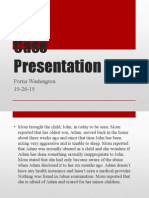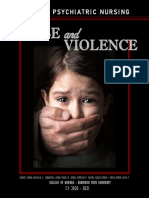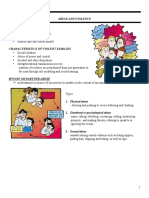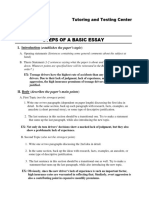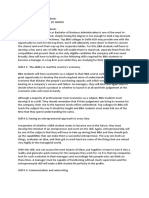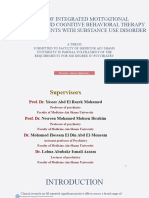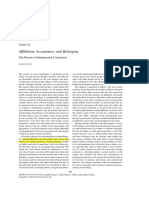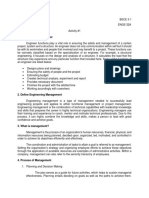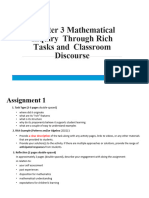0% found this document useful (0 votes)
58 views7 pagesSimran Module 5
The document outlines an assignment for a group module on abuse and neglect, detailing three case studies involving elderly and domestic abuse situations. Each case requires participants to analyze the emotional responses, signs of abuse, and appropriate actions for personal support workers (PSWs). The assignment emphasizes the importance of documenting observations and reporting suspected abuse while maintaining a supportive approach to the affected individuals.
Uploaded by
simransirohi20Copyright
© © All Rights Reserved
We take content rights seriously. If you suspect this is your content, claim it here.
Available Formats
Download as PDF, TXT or read online on Scribd
0% found this document useful (0 votes)
58 views7 pagesSimran Module 5
The document outlines an assignment for a group module on abuse and neglect, detailing three case studies involving elderly and domestic abuse situations. Each case requires participants to analyze the emotional responses, signs of abuse, and appropriate actions for personal support workers (PSWs). The assignment emphasizes the importance of documenting observations and reporting suspected abuse while maintaining a supportive approach to the affected individuals.
Uploaded by
simransirohi20Copyright
© © All Rights Reserved
We take content rights seriously. If you suspect this is your content, claim it here.
Available Formats
Download as PDF, TXT or read online on Scribd
/ 7








































